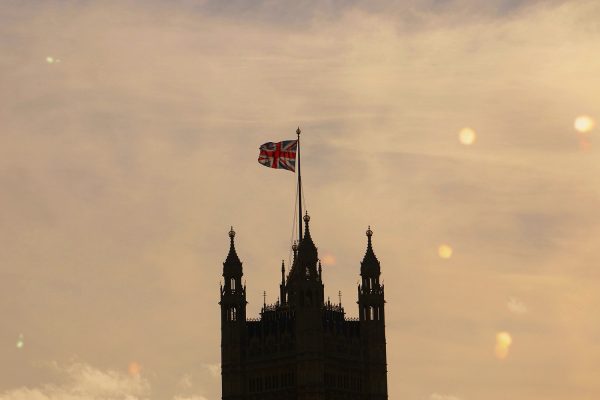
The winter of 1978-79 is remembered in Britain as the Winter of Discontent. There were mass strikes and inflation spiraled out of control. The situation led to the election of Margaret Thatcher that spring and the rise of neoliberal policies.
Could the summer and autumn of this year one day be remembered in a similar way?
In both Britain and the United States, there have been revolts against the establishment and the status quo, leading to calls for radical change.
Men of the people
In the United Kingdom, a millionaire former commodities trader who attended Dulwich College, a leading public school, managed to position himself as a man of the people and a foe of the liberal elite.
In the United States, the billionaire son of a millionaire property developer pulled off the same trick.
There aren’t the only similarities between Nigel Farage and Donald Trump.
While Trump maintained (falsely) that America’s presidential election would be rigged against him, the hashtag #usepens circulated on Twitter this summer, when Britain voted on its European Union membership in a referendum. Euroskeptics, inspired by Farage, worried that if they used the pencils polling stations provided, their votes might be rubbed out and replaced with “remain” votes.
Of course, none of that happened.
There were parallels in the economic circumstances of Brexit and Trump voters as well. Most of the votes to leave the EU came from postindustrial regions of the United Kingdom, such as North East England and parts of Wales, as well as small to medium towns, like Kingston upon Hull. Trump won in large part because the working class in Rust Belt states like Michigan, Pennsylvania and Ohio switched from Democrat to Republican.
“Enough of experts”
On the surface, then, it might seem as though both votes pitted the poor against the wealthy. And in a sense, they did.
But the truth is both insurgencies had less to do with wealth than education.
In March, The Atlantic summed up the situation, stating, “The single best predictor of Trump support […] is the absence of a college degree.”
A similar disdain or mistrust of the college-educated elite appeared in the United Kingdom around the time of the EU referendum. You may remember Michael Gove, a leading proponent of Brexit, saying, “The British public have had enough of experts.”
In the end, those with postgraduate qualifications voted to stay in the EU 75 to 25 percent. The figures were almost perfectly reversed for those who left school without a degree at all: they voted for leave 73 to 27 percent.
Multicultural divides
Alongside these educational divides, the Brexit vote and Trump’s election revealed what may be termed multicultural divides.
Those areas and cities in Britain and the United States that are diverse by and large voted for remain and Hillary Clinton, respectively. Examples include Leicester and London in England and the states of California and New York.
The next generation
Remainers and Clinton supporters may take comfort in the knowledge that other parts of their countries — despite the current populist backlash — are becoming more like theirs.
In Britain, for example, nearly three in four young people hope to go to university. Half already do. In a generation, the United Kingdom will be far more diverse and the Brexit generation will have died off.
The number of Americans going to university is similarly on the rise while the white underclass that came out to elect Trump is shrinking.
Britain’s Winter of Discontent, and its associated blackouts, industrial actions and the three-day workweek, eventually came to an end. Britain was dubbed the sick man of Europe for a while. Today, despite Brexit, the words of Harold Macmillan still ring true: Britons have never had it so good. Time will tell if it stays that way — or if we will look back on this summer as the beginning of a new era of discontent on both sides of the Atlantic.
